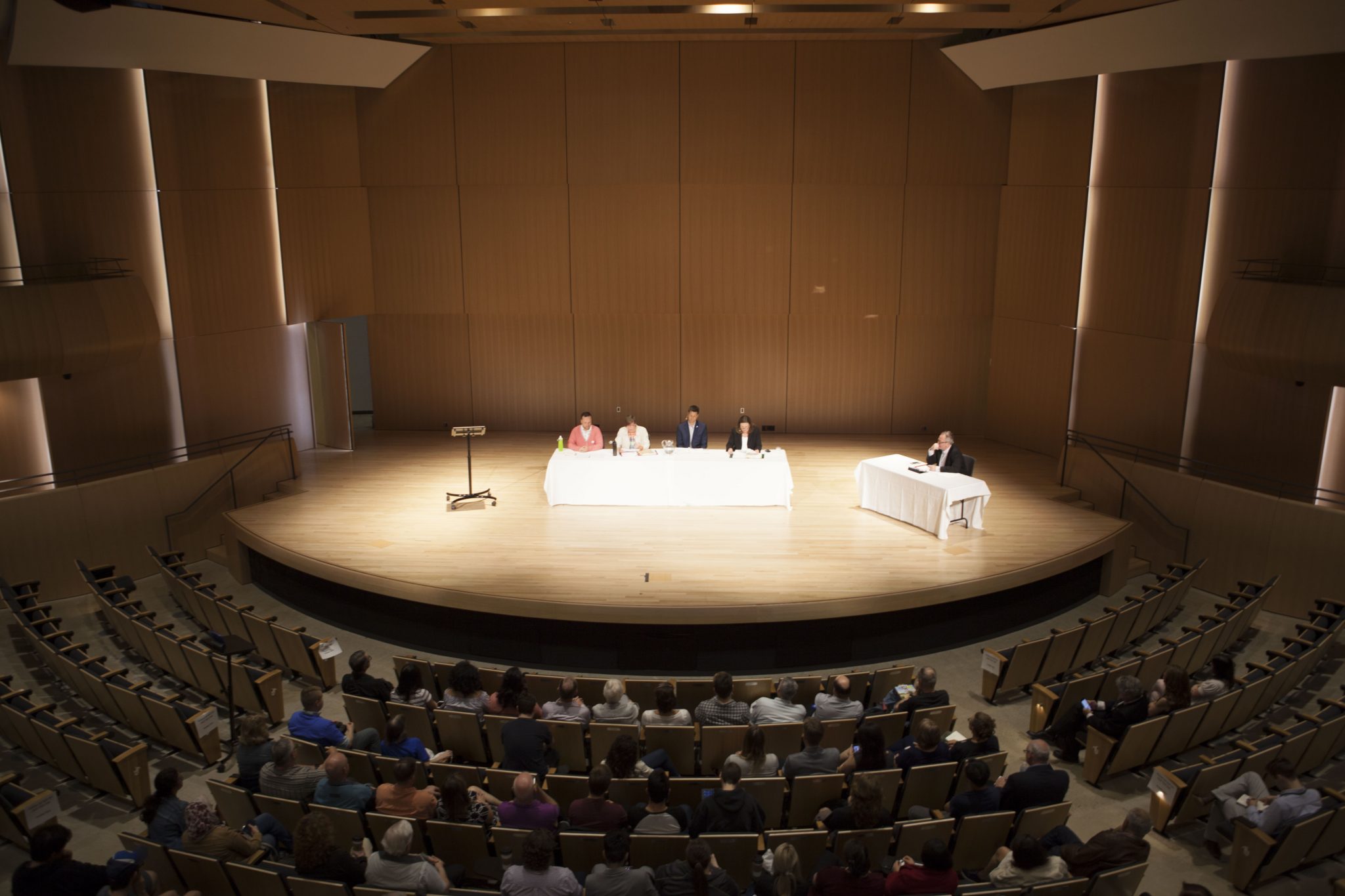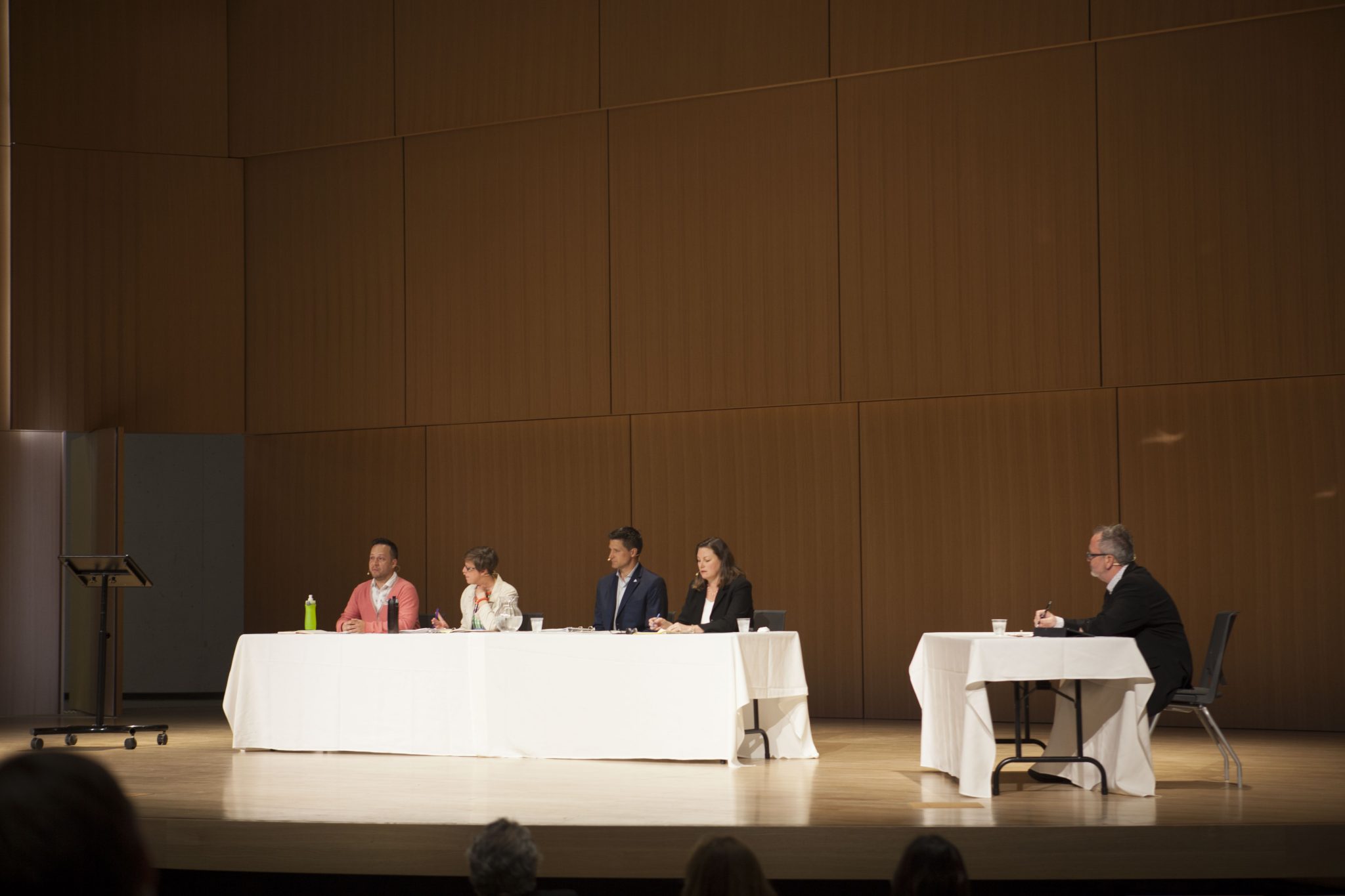Waterloo MPP Candidates discuss the future of post-secondary education at debate


On Wednesday May 16, Waterloo MPP candidates attended a municipal debate at Wilfrid Laurier University’s Lazaridis School of Business and Economics regarding important issues in post-secondary education as a provincial priority.
The debate was hosted by various parters, including University of Waterloo Staff Association, Laurier Faculty Association, UW Federation of Students, Laurier Graduate Students’ Association and Laurier’s Students’ Union.
The four local members of the major parties, Zdravko Gunjevic, Dorothy McCabe, Dan Weber and Catherine Fife, were asked their party’s stance on five major issues affecting post-secondary institutions, including public funding and quality for post-secondary education, tuition fees, mental health, the precarity of faculty and staff positions as well as support for international students.
The event began with a round of opening remarks from the candidates and transitioned into a period of questions, answers and subsequent rebuttals, finishing off with a series of closing statements.
The first question focused on each party’s plans for investing in teaching and learning in Ontario, including their faculty renewal strategy and thoughts on increasing operational funding for institutions.
The second question targeted the problem of tuition fees, asking for each party’s stance on new tuition and funding frameworks that can address both student concerns about increasing tuition fees and institutional concerns about growing costs and decreases in overall funding.
The third question spoke to mental health concerns in post-secondary institutions, specifically regarding the extent of the overall funding directed towards post-secondary students and the programs they believe will make the best use of it.
The fourth question discussed an ongoing issue within post-secondary institutions — the precarity of part-time contact faculty. With nearly 50 to 70 per cent of teaching in universities and colleges done through precarious and unpredictable part-time or contract work, the question asked the party’s stances on reinforcing or implementing labour laws to tackle this problem.
The final question focused on internationalization. With international students contributing more than $4.4 billion in taxes in 2016, the question inquired the extent to which the parties will roll out better support for international students as well as granting them access to OHIP.
Each of the candidates gave detailed answers regarding the issues surrounding post-secondary education, mirroring the desires of their party’s platforms to tackle these problems and prioritize university and college students.
“I think there’s a lot in there for youth, particularly free tuition … OHIP+ … the minimum wage increase is really critical and certainly one that is in jeopardy,” said Dorothy McCabe, candidate for the Liberal Party of Ontario.
“The mental health strategy that we’ve put on the table, it’s not overstating it to say it’s a historic investment of $2.1 billion.”
Dan Weber of the Ontario Progressive Conservative Party, suggested a more cautious approach is going to appeal to younger voters.
“We have a very significant debt in this province … and people have to understand, students have to understand, that’s what they’re getting into,” Weber said.
“We need to focus on the economy, we need to focus on jobs, so that once you spend all this time and effort going through your degree, there’s a strong economy there and jobs for you to have, because that’s the whole reason you’re in school.”
Catherine Fife of the Ontario New Democratic Party sees tuition as one of the more significant issues that her party will focus on.
“I think a majority of the students who have struggled to pay for tuition will see … we just don’t feel that students should graduate with crippling debt from University. The average amount that students do graduate with is about $30,000,” Fife said.
“We’re going to ensure that universities actually have the revenue tools so that they can alleviate some of those cost-pressures that students see on campus.”
Each of the candidates encouraged voters to look over each platform, noting that the event was an important chance to connect with and address those involved in post-secondary education.
“It’s a good opportunity to try and connect with students and let them know what’s in our platforms,” McCabe said.
Zdravko Gunjevic, candidate for the Green Party of Ontario, offered his summary surrounding the event.
“Everyone should have a look at all the parties who are running… have a look at the vision that each party has for the province, have a look at the platform [and], ultimately, a look at the values and the vision and what those mean to you,” Gunjevic said.
“I encourage all voters, all students, everyone on campus to do the same and vote with your heart … the only wasted vote is a vote you don’t believe in.”
With the provincial debate between the Liberal Party, the Progressive Conservatives and the NDP scheduled for Sunday, May 27, the debate at Laurier foreshadowed many of the ideas each of the parties have for the province.


